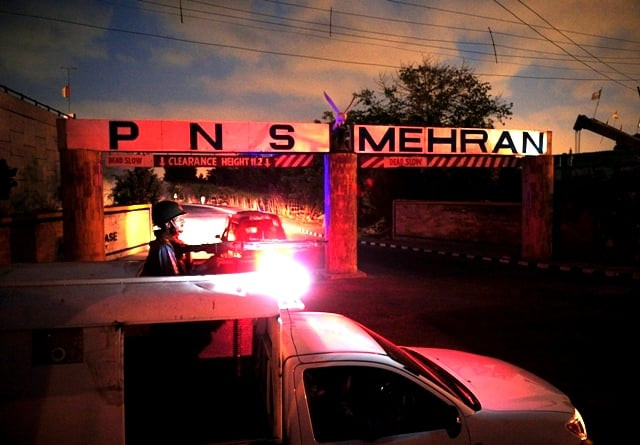Investigating intelligence failures
No steps have been taken to reform security institutions on the lines recommended by the judicial commission.

Objectivity and balance was lost in Pakistan over the death of Osama bin Laden. By becoming offended over ‘why’ and ‘how’ Osama was killed, we lost sight of what his death meant in terms of internal peace. The smoke that arose from that bout of irrelevant fury obscured the fact that the only immediate enemy of Pakistan were the affiliates of al Qaeda. In fact, we switched the enemies label after May 2, perhaps, hoping that the ‘terrorists’ fighting a war ‘which is not ours’ will look at this switch with favour. Then journalist Saleem Shahzad reporting on al Qaeda from the inside was murdered, a few days after he had written an article claiming that al Qaeda had managed to find sympathisers inside the navy and that some of these were under investigation.
Before his death, Mr Shahzad had disclosed to human rights organisations that he feared that the state’s intelligence agencies, and the ISI in particular, were after him and that they were to be held responsible if any harm came to him. His body was found with torture marks on it but, with the passage of time, his death more and more looks like a ‘mistake’ on the part of his tormentors who probably had orders only to ‘teach him a lesson’, and not to kill him. Since then, a judicial commission has delivered its verdict on his death and has made far-reaching recommendations about the reorganisation of the country’s intelligence institutions. This was, of course, in recognition by the honourable commission of the circumstantial evidence placed before it. The recommendations would make these organisations more answerable to the government, and therefore, more responsible in their conduct. Above all, a proper follow-up reform of such organisations would have scotched the rumours that proliferate about the activity of these important national security watchdogs.
Unfortunately, one year on, no steps have been taken to reform the security institutions on the lines recommended by the judicial commission. In fact, the non-action over the Mehran base attack, with three senior officers let off with what seems nothing more than a slap on the wrist, has been overtaken by another scandal also somewhat similarly named: Mehrangate. This scandal of money-gouging by intelligence agencies has not only shaken them to their foundations but also brought a bad name to the army. A retired ISI chief says he did bribe politicians with money thus grabbed and that he did so with the approval and oversight of the then army chief, who for his part has denied any role in the matter. Had the reforms of the ISI and other intelligence agencies been carried out in light of the Saleem Shahzad judicial commission’s recommendations, some of the complications that have occurred since then could have been avoided.
The PNS Mehran attack has hardly been resolved in the minds of the people, which is unfortunate. The terrorists are winning the publicity battle, as was evidenced by the most shameful jailbreak at Bannu. The jail contained dangerous criminals. After the jailbreak, the Taliban proudly claimed that they had spent Rs20 million in bribes alone. CDs of the attack are being sold openly in markets in the area. Clearly, no lessons have been learnt by the establishment following even an attack as brazen as the one on PNS Mehran. That is not a good sign because it serves to only embolden the militants and the terrorists and tells ordinary peace-loving Pakistanis that the state is not serious about fighting al Qaeda and the Taliban.
Published in The Express Tribune, May 28th, 2012.














COMMENTS
Comments are moderated and generally will be posted if they are on-topic and not abusive.
For more information, please see our Comments FAQ